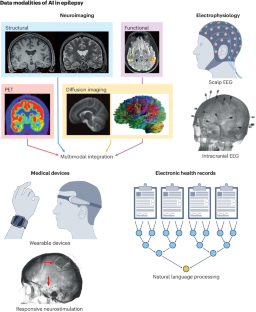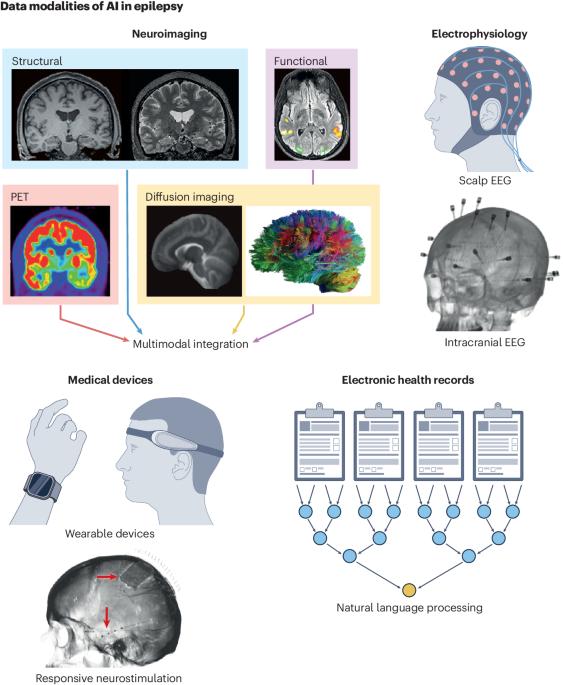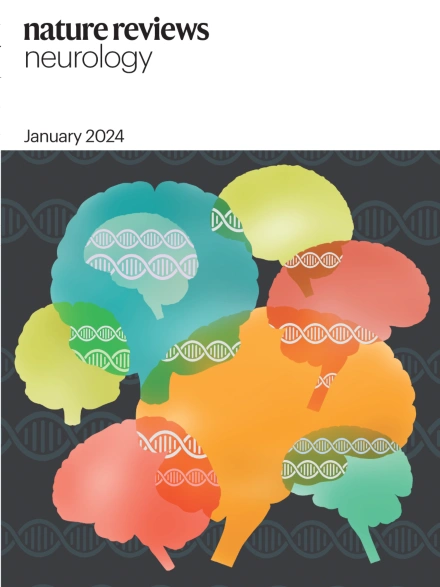人工智能在癫痫中的应用及临床路径
IF 28.2
1区 医学
Q1 CLINICAL NEUROLOGY
引用次数: 0
摘要
人工智能(AI)正在迅速改变医疗保健,其在癫痫领域的应用在过去十年中呈指数级增长。将人工智能融入癫痫管理有望彻底改变这一复杂疾病的诊断和治疗。然而,将人工智能转化为神经病学临床实践尚未取得成功,这就强调了有必要考虑迄今为止所取得的进展,并评估人工智能所面临的挑战和局限性。在本综述中,我们将概述利用各种数据模式在癫痫领域开发的人工智能应用:神经影像学、脑电图、电子健康记录、医疗设备和多模态数据集成。对于每种模式,我们都考虑了潜在的应用,包括癫痫发作检测和预测、癫痫发作侧位化、癫痫发作起始区定位以及手术或神经刺激干预评估,并回顾了迄今为止开发的人工智能工具的性能。我们还讨论了将人工智能成功融入临床实践必须解决的方法学考虑因素和挑战。我们的目标是概述该领域的现状,并为未来利用人工智能改善癫痫管理提供指导。本文章由计算机程序翻译,如有差异,请以英文原文为准。


Artificial intelligence in epilepsy — applications and pathways to the clinic
Artificial intelligence (AI) is rapidly transforming health care, and its applications in epilepsy have increased exponentially over the past decade. Integration of AI into epilepsy management promises to revolutionize the diagnosis and treatment of this complex disorder. However, translation of AI into neurology clinical practice has not yet been successful, emphasizing the need to consider progress to date and assess challenges and limitations of AI. In this Review, we provide an overview of AI applications that have been developed in epilepsy using a variety of data modalities: neuroimaging, electroencephalography, electronic health records, medical devices and multimodal data integration. For each, we consider potential applications, including seizure detection and prediction, seizure lateralization, localization of the seizure-onset zone and assessment for surgical or neurostimulation interventions, and review the performance of AI tools developed to date. We also discuss methodological considerations and challenges that must be addressed to successfully integrate AI into clinical practice. Our goal is to provide an overview of the current state of the field and provide guidance for leveraging AI in future to improve management of epilepsy. Integration of artificial intelligence into epilepsy management could revolutionize diagnosis and treatment. In this Review, the authors provide an overview of artificial intelligence applications that have been developed in epilepsy and discuss challenges that must be addressed to successfully integrate artificial intelligence into clinical practice.
求助全文
通过发布文献求助,成功后即可免费获取论文全文。
去求助
来源期刊

Nature Reviews Neurology
医学-临床神经学
CiteScore
29.90
自引率
0.80%
发文量
138
审稿时长
6-12 weeks
期刊介绍:
Nature Reviews Neurology aims to be the premier source of reviews and commentaries for the scientific and clinical communities we serve. We want to provide an unparalleled service to authors, referees, and readers, and we work hard to maximize the usefulness and impact of each article. The journal publishes Research Highlights, Comments, News & Views, Reviews, Consensus Statements, and Perspectives relevant to researchers and clinicians working in the field of neurology. Our broad scope ensures that the work we publish reaches the widest possible audience. Our articles are authoritative, accessible, and enhanced with clearly understandable figures, tables, and other display items. This page gives more detail about the aims and scope of the journal.
 求助内容:
求助内容: 应助结果提醒方式:
应助结果提醒方式:


